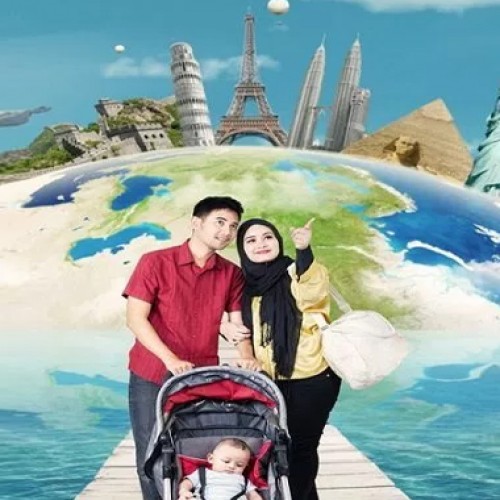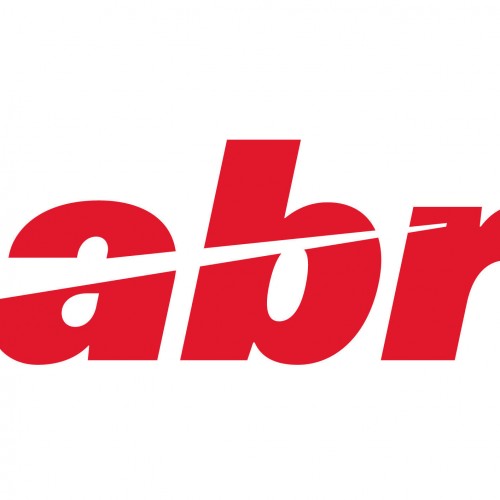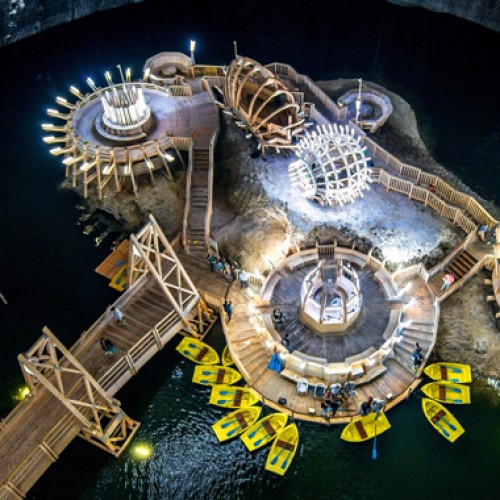Selling travel to millennials
Words by Ramsha Akhtar
Selling travel to millennials Aldous Huxley said, “To travel is to discover that everyone is wrong about other countries.”
Before the COVID-19 pandemic, environmental studies, reports and foresight published showed that it was going to be a struggle to make the travel and tourism industry greener and decrease its carbon footprint. No one suspected that the central issue in 2020 would be how to keep tourism alive.
As we stand today, the industry is almost paralyzed. Numbers reflect the scale of the crisis affecting the industry. Estimates from the United Nations World Tourism Organization (UNWTO) show that tourism could decline by 60-80% over the whole year and put millions of jobs at risk in one of the most labour-intensive sectors of the economy.
Although the recovery will depend partly on how long the pandemic lasts and partly on resulting changes in travellers’ behaviours, travel companies need to think of new and exciting ways to attract travellers. If sales and marketing resources are scarce and need to be target-oriented, it seems wise to focus on millennials. They seem to be the most likely demographic to provide a sustainable and resilient recovery for the travel and tourism industry. Why? Studies, including the 4th release of Fuel’s COVID-19 Consumer Sentiment Study series, have shown that millennials are more willing to travel sooner as global travel restrictions ease and are less risk-averse in general. Moreover, early reports have already shown that older generations are more susceptible to the virus.
As millennials literally take over the world, by taking up more and more important positions in the workplace and public office and also taking over the average global demographic ever since their arrival nearly a decade ago; this tech-savvy and digitally forward generation is ready and rearing to go.
Therefore, we are here to propose a new conceptual framework for targeting millennials. This article aims to offer great insights into how to ‘Sell the Experience’ rather than a destination to millennials. It also offers a lot of food for thought on how to redefine the tourism industry so that it actively contributes to a sustainable and prosperous future and positively influences visitor’s and local population’s quality of life. It encourages stakeholders in the travel and tourism industry to rethink their models, systemic approach and plan of action by engaging different mindsets and thinking outside of the box so that new opportunities for tourism professionals and those dependent on the industry can arise.
So to begin let’s address, who exactly is a millennial?
Millennials are the children of ‘Baby Boomers’ or ‘Generation Xers’. They are born between 1980 and 2000. As of this year, i.e., in 2020, the average age of the millennial is 29. They are forecasted to comprise 75 per cent of the global workforce by 2025. In fact, massive companies including Ernst & Young and Accenture have already reported that millennials make up over two-thirds of their entire employee base.
They have emerged as a powerful political and social force and are born in an era where information can be accessed in a matter of seconds. Millennials are competent, qualified and highly engaged with technology. Some scholars even believe that millennials are changing the face of cities but even without going that far it is given that they certainly are transforming the workplace. Making up the major part of the workforce in today’s economy, millennials are harnessing their talent and potential to improve efficiencies in the workspace and introducing a more flexible and balanced work environment. This change has only been accelerated by the COVID-19 pandemic. The “Work from home” or “work remotely” policy is already a reality. With these huge shifts in demography and culture, it is even more important for travel businesses to better understand the largest base of tourism-users in the new normal.
Now, this brings us to the question, ‘Who are millennial travellers?’
The millennials, with their peculiar practices, behaviour and lifestyle, are in search of special environments, that are characterized by innovation, creativity and multi-sensorial experiences mixing virtual and social aspects: smart and social mobile technology; innovative urban festivals of visual and performing arts; museums more attentive to new languages, digital culture and mobile social activities; new practices of shared-economy, involving mobility (bikes and cars) and working spaces; sophisticated food-districts and café-lounging with live music and glocal food; elegant, friendly and inspiring high-tech hotels; environmentally-sound and pro-social forms of urban-tourism; meaningful and personalized on-site experiences.
Words like “authentic,” “tech-savvy” and “instant gratification” are frequently used to describe the millennial generation. Millennials find life’s meaning and value through experiences rather than careers or material things. According to a survey conducted by Harris Poll on behalf of an online ticket company, Eventbrite, 78% millennials would rather spend money on experiences than things. Undeniably, there is no better experience than travel to force them out of their comfort zone.
For a millennial, an ideal getaway is not a popular tourist destination but rather a remote destination that is value for money and offers authentic lodging options. That being said, it would be wrong to label them as penny pinchers. US Millennials alone spent $200 billion on travel in 2018. According to an article published by Forbes Magazine, millennials in the United States spent an average of $4,594 on vacations in 2017. Simply put, millennials don’t want a cookie-cutter experience, but rather the chef’s special gourmet experience and they are willing to pay for it.
Why is it crucial to address the millennials as a market?
A Millennial traveller is important to pay attention to in the hospitality and travel industry because of his or her level of wealth, discretionary income, free time to travel, affinity to travel and explore and their tendency to travel greater distances and for longer lengths of time. Research shows that had the world not been struck by COVID-19 outbreak, the expected figure of millennial travellers was estimated to increase by 59% at 320 million travellers and generate around $336 billion. With a scope that huge, it’d be a waste to not capitalize on it.
Moreover, when the going gets tough, the young keep travelling. Young travellers are relatively intrepid and are unlikely to be phased by economic problems, political unrest or in this case, a pandemic. Despite the economy and tourism taking a huge hit due to the coronavirus outbreak, the millennials have shown a strong resiliency. Owing to their price-sensitive nature and attention to shared-economy activities, they are likely to find pandemic a better time to travel because you are more likely to get deals on travel. Their eagerness to explore the world once again and leave behind the mental exhaustion of months of isolation will encourage them to begin travelling as soon as possible.
Remember, the millennials are the same generation that graduated in the peak of the Great Recession in 2008 and survived. In fact, there is even anecdotal evidence to suggest that young people may be stimulated to take more long trips when the economy is poor – if there are fewer job openings, many millennials consider taking a gap year or gaining some work experience until the economy picks up again.
The delayed entry in a working environment is a significant feature of the millennial age that assists the millennials to use travelling as a mean of developing themselves and their future career. Millennials also still tap into their parents’ assets and this absence of urgency to get into a workforce enables them to travel without worries. This deferral of adulthood is commingled with a flexible working environment that allows millennials to invest significant time to have a vacation or reorient career goals and skills. Many also engage in what WYSE Travel Confederation has termed ‘funemployment’, i.e., using their redundancy money or savings to have a time out until a new job comes along.
What motivates a millennial to travel?
Before we get to the how, one must know the motivation behind millennial travellers. In a scholarly paper by C. Ryan and I. Glendon in 1998 titled ‘Application of leisure motivation scale to tourism. Annals of Tourism Research’, four emerging factors stood out as motivation behind travellers. The four dimensions were the social dimension, the relaxation dimension, the intellectual dimension and the competence-mastery dimension. This scale can allow us to look at what the millennial travellers seek and consequently create a comprehensive framework that gratifies the above-mentioned dimensions. The following table applies the Leisure Motivation Scale to the current findings and motivations of a millennial traveller:
Now for the most important question, how can one sell travel to millennials?
Using what we know about millennials as a guide, we aim to provide some insight into how to effectively sell to the large population of millennials as a means to recovery in the COVID era.
•Most out of the moolah:
Millennials put a lot of thought into getting the most out of what they’re spending. For example, they are more likely to book a nice room that has been discounted to Rs.3000 from Rs.5000 than anRs.3000 room at full price. This trend also seems to permeate a desire to use loyalty programs to earn free or discounted travel rather than just be handed upgrades. Thus, it is incredibly important that marketing strategies must aim to capture attention by focusing on providing a perceived sense of value or sense of connection and loyalty.
• Experience, Experience, Experience:
In a report, BCG found that the numbers of experiential travel and events have gone up by 70% since 1987. Given the current situation where a sense of belonging and being part of something larger is at its peak, experiential travel is underutilized. By embracing local culture and forming experiential travel opportunities around it, travel brands that are built on experiences can capture this added economic value and win the hearts of consumers. Whether it’s in the form of a music festival, outdoor adventure, shopping, food and wine festivals, institutions have ample opportunities to provide group promotions and services that cater to these needs.
• Inspect and Adapt:
We are facing a multi-level, co-creative and often informally carried out urban planning where residents, tourists, policy-makers and other-stakeholders are adapting the urban space to the needs of this generation. For example, the high-lane in Manhattan has become one of the top visitor attractions in New York. It is even more popular than the Statue of Liberty. Its international tourism success and its impact on the urban and cultural landscape is interpreted not only as a mere instrument of postmodern urban beautification but also as a spectacular result of new values and needs. Important cities, such as Barcelona, Ottawa, Seattle and San Francisco, are implementing urban and tourist policies oriented to attract the millennials. This helps to create “smart cities” and friendly tourist environments in an international framework of innovative urban competition.
• Selling the Experience:
Although fun and relaxation is the main aim of the trip for some, these “leisure” motivations were far outweighed by the desire to explore or undertake more productive types of travel such as learning a language or volunteering. These more “serious” motivations accounted for over 70 % of all trips.
• Culture is Key:
Cities resemble personalities and can be described with human characteristics. For example, New York is contemporary, wealthy and individualistic; Paris is aristocratic, fashionable and chic; Berlin is versatile, dynamic and artistic; Mumbai is diverse, cultural and colourful. In the book Nation Branding: Concepts, Issues, Practice by Keith Dinnie, if destinations want to flourish, they must deliver distinctive, compelling, memorable and rewarding experiences to their target consumers. A multi-sensory travel experience, including sight, hearing, taste, smell and touch, generates certain beliefs, feelings, thoughts and opinions in the consumer’s mind. From tourist attractions renowned all over the world to native identities, for a millennial, culture plays a significant and vital role when it comes to travel. These attractions lure millennial travellers who want to experience the places and activities that represent the stories and people of the past and the present. The authentic local experience is broad: from sites, buildings and artefacts to people’s values, attitudes and ways of life including food, clothing, handicrafts, dance and events. All have a positive economic and social impact as it establishes and reinforces the identity of the city, the overall vibrancy of traditions and histories and retains the value of uniqueness.
• Digitize and monetize:
Remember the chef’s special gourmet experience we talked about earlier? In a study conducted by BCG, 75% millennials reported having travel apps on their phones as opposed to 47% non-millennials. The group reported doing more travel research and comparisons over the Internet and is also more likely to book through a travel aggregator or an OTA. Since millennials are not one to shy away from sharing information and travel requirements online, the breadcrumb trail of data left behind as they hop from channel to channel can provide huge value to institutions. This data can allow travel companies to provide uniquely tailored online experiences based on what travellers have previously expressed interest in. Companies can segment their customers to identify those most engaged in business vs. leisure travel, the most profitable segments, each segment’s unique behaviours, needs, frustrations and preferences.
• Social Media Takeover:
Social media has a huge role in selling travel to millennials. Institutions that make it easy for these young adults to share photos, videos and content and live vicariously through their friend’s experiences often see tangible rewards. Studies show that 43% of millennials access their phones every five minutes, providing brands with an unprecedented opportunity to reach young adults during these intent-driven “micro-moments”. Not only are millennials using social media to share their experiences, but they also seek inspiration here during the early phases of travel research. Institutions that focus on storytelling, social media, and content marketing are much more likely to generate interest in their products and services amongst millennials than those institutions selling through traditional sales channels.
• Online Reputation:
Millennials also report having a strong influence on their friends, families, coworkers and even strangers as a result of social media. The amplification of experiences using social channels is something that can be both a blessing and a curse for many. Learning to respond swiftly and gracefully to less than flattering comments or social posts must become second nature to minimize damage. On the other hand, companies should also learn to capitalize on the value of user-generated content, that is viewed as something much more trustworthy than the well-manicured photos that make up a company’s website. Moreover, above and beyond sharing their experiences on social media, the Eventbrite studies show that 80% of millennials report that travel reviews have a real influence on their decisions and 56% of them say they post online reviews following a trip. This also means that it is more essential than ever to train and empower employees to prevent service breakdowns that might result in bad reviews.
• Like bees to honey:
Millennials often travel to study and/or work in the places they visit. Student travel is currently being perceived as an inexorably necessary economic driver. Further, the versatile and flexible corporate sector carved by millennials is becoming practically indispensable in certain parts of the world. It is proving to play an important role in attracting other visitors to the destination. For instance, estimations calculate that for every student studying in Australia, an average of 1.3 people visited the country. This butterfly effect generated the Australian economy a surplus of AU$1.2 billion every year. Additionally, the “buzz” created by foreign millennials acts as a magnet for attracting visitors and businesses. This has now been perceived as a strategy across the globe wherein numerous centres and projects are introduced so the town can act as a hub for social, cultural, innovation, artistic and inventive activities.
Conclusion:
The millennial travellers are a lucrative market. It is necessary to study, understand, attract and satisfy them to reap the economic benefits they bring. In an industry that has typically been slow to adopt new technologies, it seems that millennials are forcing the hand of travel and hospitality institutions. Those who can capitalize on this opportunity by delivering unique brand positioning, experiential or event-based travel opportunities, and effectively reaching their audiences on social media are poised for success.
Furthermore, as consumers increasingly expect their needs to be anticipated, data-driven marketing will have to become a central part of the strategy for the travel industry moving forward. Finding a balance between income and authenticity will be a challenge for institutions that want to drive revenue while at the same time form “bonds” that will encourage loyalty amongst millennial travellers.
This evolution towards unique and original experiences is the real key in understanding and reaching millennials. Although the current situation seems almost desperate in many destinations, it is possible for the tourism industry to thrive post-COVID and this bounce-back could be led by millennials. As sung by Leonard Cohen: “There is a crack in everything, that is how the light gets in”.
You might also like
Muslim millennial travel report to be launched at ITB Asia 2017
Mastercard and Crescent Rating to launch new Muslim millennial travel report focusing on the rise of young Muslim travellers at the Halal-In-Travel Summit held as part of ITB Asia 2017 ITB
Sabre to offer NDC-enabled solutions in 2018
Travel technology leader will bring to life the promise of NDC through its innovative retailing, distribution and fulfillment solutions. Demonstrating its full commitment to lead the industry evolution toward next-generation
Romania: a land of stunning natural landscapes
A country endowed with amazing nature and rich heritage, Romania is a destination of myriad attractions. Romania’s natural landscapes are quite diverse and fascinating. In an interview to TnH, H.E.








